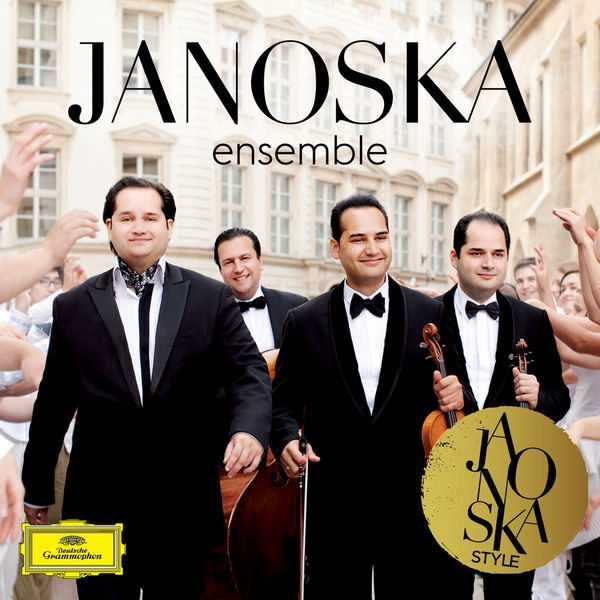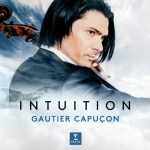

Composer: Fritz Kreisler, Jules Emile Frederic Massenet, Astor Piazzólla, Johann Strauss, Franz Waxman
Performer: Janoska Ensemble, Ondrej Janoska, Roman Janoska, Julius Darvas, František Janoska
Format: FLAC (tracks)
Label: Deutsche Grammophon
Catalogue: 4812524
Release: 2016
Size: 1.06 GB
Recovery: +3%
Scan: cover
01. Strauss: Die Fledermaus Overture à la Janoska
02. Kreisler: Liebesleid
03. Janoska: Musette Pour Fritz
04. Bizet: Carmen Fantasie
05. Massenet: Thais. Méditation
06. Paganini: Paganinoska
07. Janoska: Melodie For Melody
08. Mozart: Rumba For Amadeus
09. Sarasate: Tarantella vs. Niska Banja
10. Piazzólla: Adiós Nonino
With their inimitable ‘Janoska style’ the four members of the Janoska Ensemble have developed a breathtakingly virtuosic and profoundly personal vision of music, which they interpret in a thoroughly modern way
For their debut album they have chosen to present a picture of Vienna as a cultural melting pot, lacing it with irony and wit and taking it beyond the confines of the Austrian capital
On “The Janoska Style” virtuoso classics by Franz Waxman, Niccolò Paganini and Pablo de Sarasate are heard alongside a Viennese work by Fritz Kreisler and operetta themes by Johann Strauss combined with the strains of a Csárdás, music from the Balkans, the world of the tango, rumba and of jazz improvisations
Their inexhaustible inventive arrangements allow the Janoska Ensemble to explore a wide range of works from popular classics to compositions that they have written themselves
Violinist Julian Rachlin says: “As an ensemble “they are a whiff of fresh air”, combining their outstanding, individual talents with their family ties. They have become successful in performing in a variety of genres in their unique ‘Janoska style’, which is creating a new hybrid genre”
The Deutsche Grammophon label does not have a strong track record with light music, but give a chance to this release by the Slovak-Austrian Janoska Ensemble: three brothers named Janoska, plus a brother-in-law, double bassist Julius Darvas. Aspects of the music — the Gypsy influences, the short virtuoso showpieces, the waltzes, and standard classical melodies — might have come from the work of a Viennese café ensemble a century and a quarter ago. But the Janoska Ensemble updates this repertoire in several effective ways. They contribute new compositions of their own, and they include an arrangement of Astor Piazzolla’s elegiac tango Adiós Nonino at the end that works exceptionally well in this context. They raise the virtuosity level in Paganinoska, a reworking of Paganini’s Caprice No. 24. And, at the same time, they take a step in the direction of chamber music as opposed to café music; the piano quartet-like ensemble of two violins, double bass, and piano brings a soberness that sets off the Gypsy rhythms of a Sarasate in a new way. Sample one of the custom-written compositions, like Melodie for Melody, for a typical taste. Enjoyable as party music, but also as listening music.



